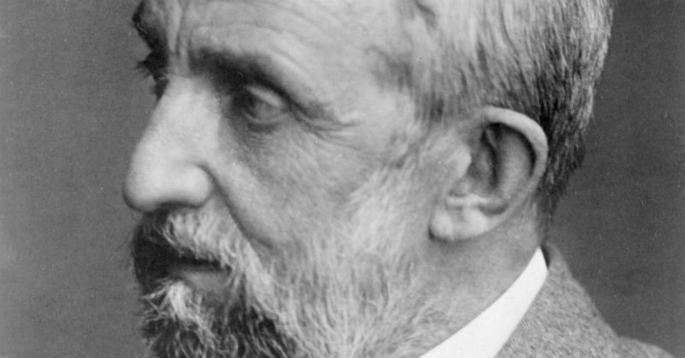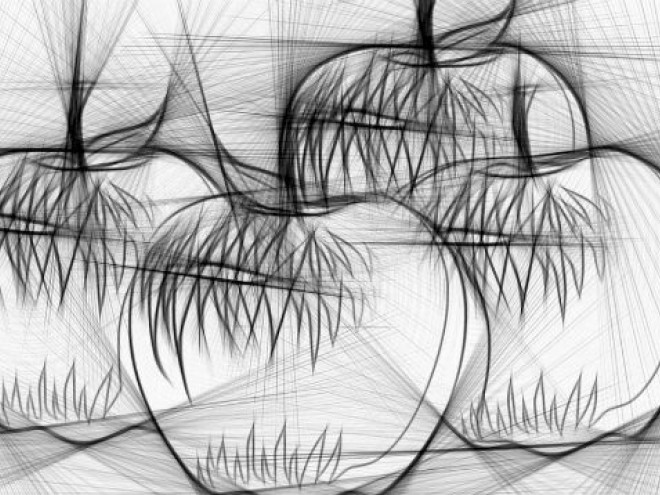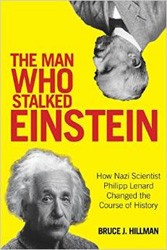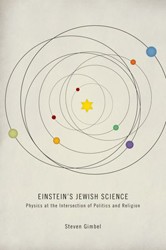This week, Bruce J. Hillman shares the story behind his first non-medical book, The Man Who Stalked Einstein: How Nazi Scientist Philipp Lenard Changed the Course of History as part of the Visiting Scribe series on The ProsenPeople.
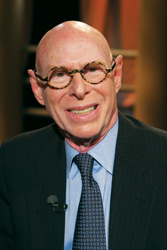 A glance at my photograph is enough to tell you that I am not your typical first-time author. I have enjoyed a 40-year career as an academic physician. Much of that career was devoted to writing and editing scientific and medical manuscripts. Nonetheless, I wished for an opportunity to express myself more creatively than the strictures of scientific writing and publication allow. About 10 years ago, a small group of university women invited me into their monthly writing critique group. Kindly but firmly, they set me on the path to writing The Man Who Stalked Einstein.
A glance at my photograph is enough to tell you that I am not your typical first-time author. I have enjoyed a 40-year career as an academic physician. Much of that career was devoted to writing and editing scientific and medical manuscripts. Nonetheless, I wished for an opportunity to express myself more creatively than the strictures of scientific writing and publication allow. About 10 years ago, a small group of university women invited me into their monthly writing critique group. Kindly but firmly, they set me on the path to writing The Man Who Stalked Einstein.
I came upon the history that underpins The Man Who Stalked Einstein serendipitously. While sifting through a list of references on an unrelated topic, my attention was drawn to the citation for a 1946 medical journal article about an American military doctor’s interviews of a Nazi war criminal named Philipp Lenard. Researching online, I found that Lenard and Einstein had, for many years, engaged in a dangerously antagonistic relationship that had been referenced in other works but never examined in detail.
A chance phone call to a prospective agent (one of eighty or so inquiries I made seeking representation for a novel I had written; the still unpublished manuscript resides on the hard disk of my computer) led to my reorienting my writing priorities. I would become a writer of creative non-fiction. My new agent, Claire Gerus, instructed me in writing a proposal, sounded out the interest of a number of publishers, and ultimately secured an agreement and an advance for Einstein with Lyons Press.
I began to conduct research on the book in earnest. As it turned out, Lenard initially had been gratified by Einstein’s crediting him as an important influence on his early work. Over time, however, Einstein’s theoretical approach to physics came into conflict with Lenard’s traditional experimentalism. In the fall of 1920, at the first meeting of German scientists following the Great War, the scientific dispute between the Nobel Prize-winning Lenard and the seventeen years younger Einstein turned ugly. Envious of Einstein’s popularity and angry over the desertion of German physicists to Einstein’s camp, Lenard sought to debunk the theory of relativity and defame Einstein as a charlatan. He turned what was supposed to be an open debate on the theory of relativity into a mano a mano showdown gauged to depict Einstein as a cynically calculated fraud. High noon on a cosmic scale.
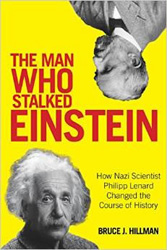 To this point in time, Lenard had scantily clad his repugnance for Einstein in the trappings of scientific rigor. Following ‘die Einsteindebatte,’ Lenard dropped all pretenses. His vitriolic anti-Semitic rants personified Einstein as “the Jew” and did more than their fair share to alter the once very positive popular view of Einstein. In 1933, en route back to Germany from a sabbatical at Cal Tech, Einstein got wind of invasions of his homes in Berlin and Caputh. Learning that a price had been put on his head, he resigned his German citizenship and returned to the US. Upon Adolf Hitler’s ascent to power, Lenard and his younger acolyte Johannes Stark spearheaded the dismissal of Jewish scientists from German universities, prompting the scientific diaspora to Germany’s future enemies that continues to influence international scientific leadership to the present day.
To this point in time, Lenard had scantily clad his repugnance for Einstein in the trappings of scientific rigor. Following ‘die Einsteindebatte,’ Lenard dropped all pretenses. His vitriolic anti-Semitic rants personified Einstein as “the Jew” and did more than their fair share to alter the once very positive popular view of Einstein. In 1933, en route back to Germany from a sabbatical at Cal Tech, Einstein got wind of invasions of his homes in Berlin and Caputh. Learning that a price had been put on his head, he resigned his German citizenship and returned to the US. Upon Adolf Hitler’s ascent to power, Lenard and his younger acolyte Johannes Stark spearheaded the dismissal of Jewish scientists from German universities, prompting the scientific diaspora to Germany’s future enemies that continues to influence international scientific leadership to the present day.
How Lenard became radicalized in his anti-Semitic beliefs, hounded Einstein in his writings and speeches, and became the touchstone for what was acceptable science during the early years of the Third Reich is a cautionary tale about the spoiled fruits of envy and prejudice with a satisfying and moral ending: Albert Einstein was Time’s “Man of the 20th Century,” while Lenard has been consigned to the historical dustbin.
Bruce Hillman is Professor of Radiology at the University of Virginia and Editor-in-Chief of the Journal of the American College of Radiology. He has published eight short stories and the 2010 book for lay readers, The Sorcerer’s Apprentice: How Medical Imaging is Changing Health Care. The Man Who Stalked Einstein is his first non-medical book.
Related Content:
- Harry Ostrer: Albert Einstein: A Highly Committed Jew by Heritage and Origin
- Albert Einstein Reading List
- Book Cover of the Week: Einstein’s Jewish Science
Bruce Hillman is Professor of Radiology at the University of Virginia and Editor-in-Chief of the Journal of the American College of Radiology. He has published eight short stories and the 2010 book for lay readers, The Sorcerer’s Apprentice: How Medical Imaging is Changing Health Care. The Man Who Stalked Einstein is his first non-medical book.
